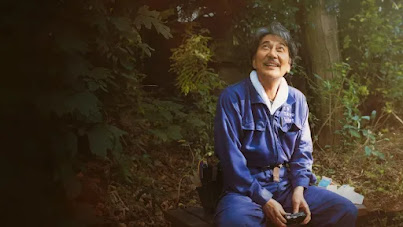I’m currently reading Ferdinand Mount’s book “Big Caesars and Little Caesars” (“how they rise and fall – from Julius Caesar to Boris Johnson”). As a former editor of ‘The Spectator’ and head of Margaret Thatcher’s think-tank, rest assured that he’s no liberal-lefty!!
It’s a fascinating book and well worth reading if you are ‘politically inclined’(!)…
But, with local elections taking place tomorrow (2 May), I thought his comments about the need for the electorate to produce photographic ID at the polling stations in order to cast their votes were timely reminders of one of the ways we’re being manipulated by the Conservative government - just one of five measures* he highlights (apologies for quoting at such length, but I think it’s important):
“Voter suppression:
But of course in order to exercise power in this exuberant style, the Tories have to acquire power and hang on to it. The first priority is to win the upcoming general election, and prepare for the election after that. What is the best method of improving your chances? First, to adjust the boundaries of the constituencies to maximise the impact of your votes... Then, not only to encourage your voters to turn out by every possible means, but also to discourage the potential voters for the other side, either by preventing them from registering on the electoral roll or to make it difficult for them to cast their votes – so-called ‘voter suppression’. Thirdly, most flagrantly, by stuffing the ballot boxes with votes by people who don’t exist or have already voted or are not qualified to vote…
British general elections… have been remarkably free and fair for a long time – ever since voter personation and other dodges were finally eliminated in Northern Ireland. There has been no substantial evidence of fraud at any recent general elections. Yet the Tories’ 2019 election manifesto included this pledge: ‘We will protect the integrity of our democracy by introducing voter identification to vote at polling stations, stopping postal vote harvesting and measures to prevent any foreign interference with elections’.
All this, now contained in the Elections Act, is an egregious solution to a non-existent problem. It can have one purpose only: to suppress the votes of the poorer and less organised voters who are less likely to possess photo ID. When voter ID was made mandatory in Northern Ireland in 2002, the number of voters on the new register dropped by 120,000 or 10 per cent. This suspicion is confirmed by a second pledge, to make it easier for British expats to vote in parliamentary elections, expiates being plausibly thought far more likely to vote Tory, just as the worst off are more likely to vote Labour. Thus one set of voters whose fortunes do not depend on the actions of the UK is to be encouraged, while a far larger number of voters who do depend – often desperately – on what the British government does or does not do for them is to be discouraged. It is hard to imagine a more flagrant strategy to rig the result. It may be that as holding voter ID becomes more universal over the years, the adverse effect will diminish. But what is clear is that the MOTIVE behind the Elections Bill is to secure party advantage under the cloak of fairness.”
Believe me, I COULD have quoted far more extensively on this and other related subjects (eg. Trump and Johnson don’t emerge in Mount’s book in anything like a ‘good light’!).
Be afraid. Be very afraid!
PS: * The other measures Mount refers to (arising out of the Conservative manifesto for the 2019 general election) relate to the following: ‘Dissolving Parliament’; ‘Sacking MPs’; ‘Sacking civil servants’ and ‘Taming the judges’.








